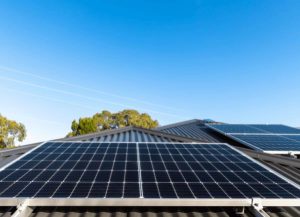How Many Kilowatt Hours Does a Typical Solar Panel Produce?
Understanding the average kilowatt-hour (kWh) production of a typical solar panel is essential for evaluating the efficiency and potential energy output of solar energy systems. By delving into the specifics of solar panel performance, individuals and businesses can make informed decisions regarding their renewable energy investments.

Factors Affecting Solar Panel Production
Several factors influence the kWh production of a solar panel. Panel efficiency is a key determinant, with modern solar panels typically boasting efficiency ratings ranging from 15% to 22%. Higher efficiency panels can generate more electricity from the same amount of sunlight, resulting in increased kWh production. Additionally, geographical location, weather conditions, and panel orientation play significant roles in determining solar panel performance.
Average kWh Production Range
On average, a typical solar panel can produce between 10 to 20 kilowatt-hours (kWh) of electricity per day. However, actual kWh production can vary based on factors such as panel efficiency, geographical location, and weather patterns. In regions with ample sunlight and optimal conditions, solar panels may achieve daily kWh production at the higher end of the range.
Calculating kWh Production
Estimating the kWh production of a solar panel involves multiplying its capacity by the average number of sunlight hours in the area. For example, if you have a 350-watt solar panel in a location with an average of 5 sunlight hours per day, the calculation would be:
350 watts × 5 hours = 1,750 watt-hours, or 1.75 kWh per day
This calculation provides an estimate of the daily kWh production for a single solar panel under typical conditions.
Optimizing Solar Panel Performance
To maximize kWh production from solar panels, various strategies can be employed. Regular maintenance ensures panels remain clean and free from debris, optimizing sunlight absorption. Additionally, monitoring energy production allows for the timely detection of any issues affecting performance, enabling prompt resolution.
Conclusion
Understanding the kWh production of a typical solar panel is crucial for harnessing the full potential of solar energy. By considering factors such as panel efficiency, geographical location, and weather conditions, individuals and businesses can make informed decisions regarding their renewable energy investments. To learn more about how many kilowatt hours does a solar panel produce, visit how many kilowatt hours does a solar panel produce.